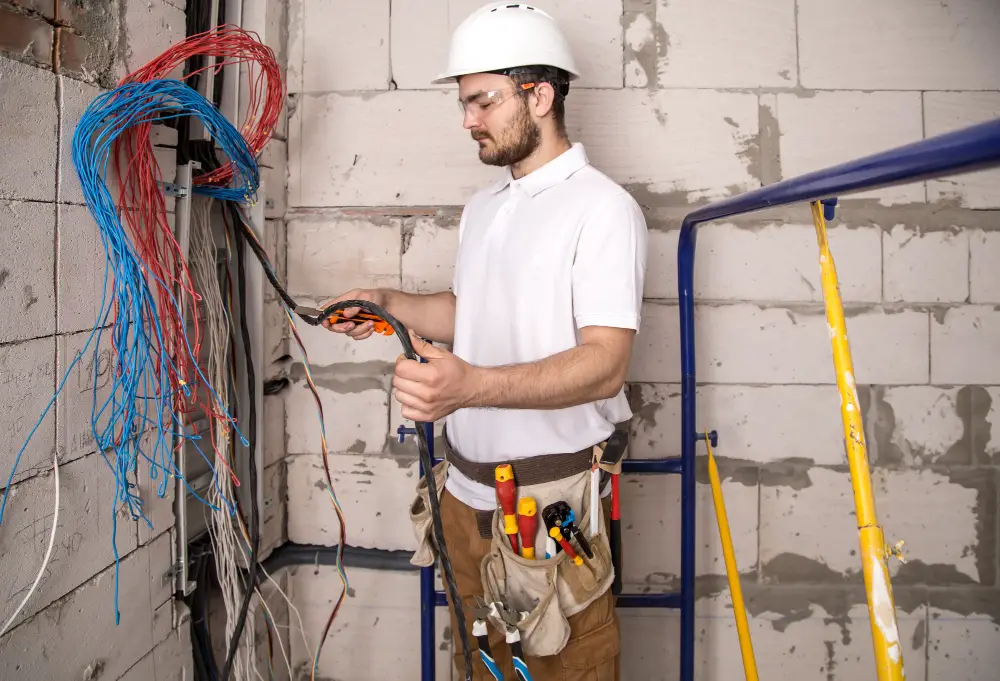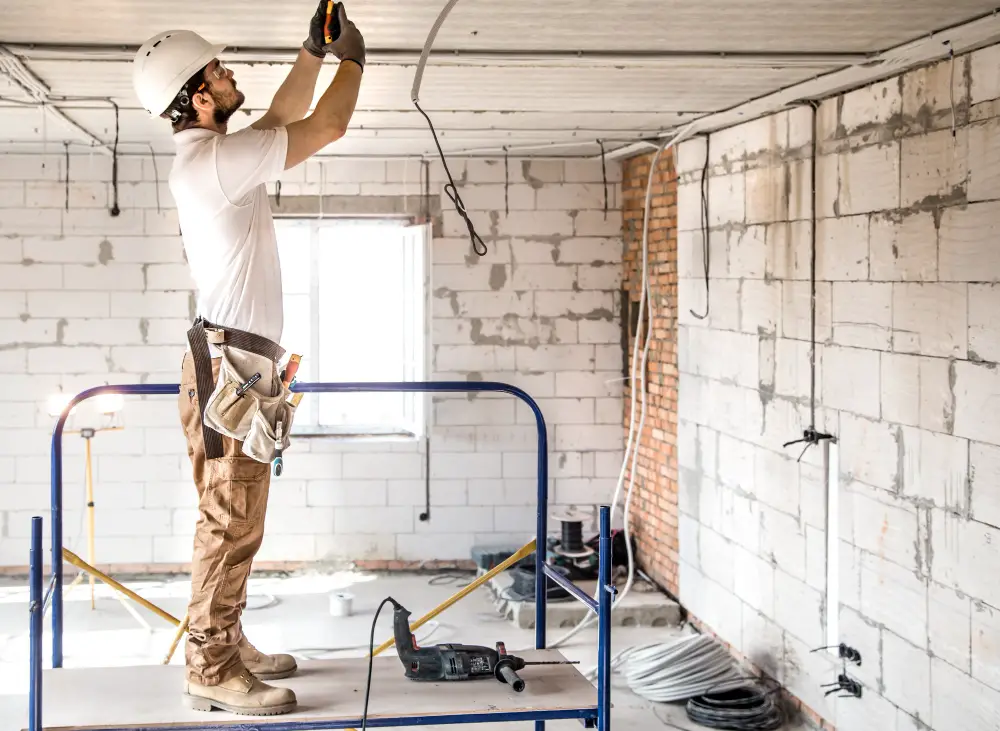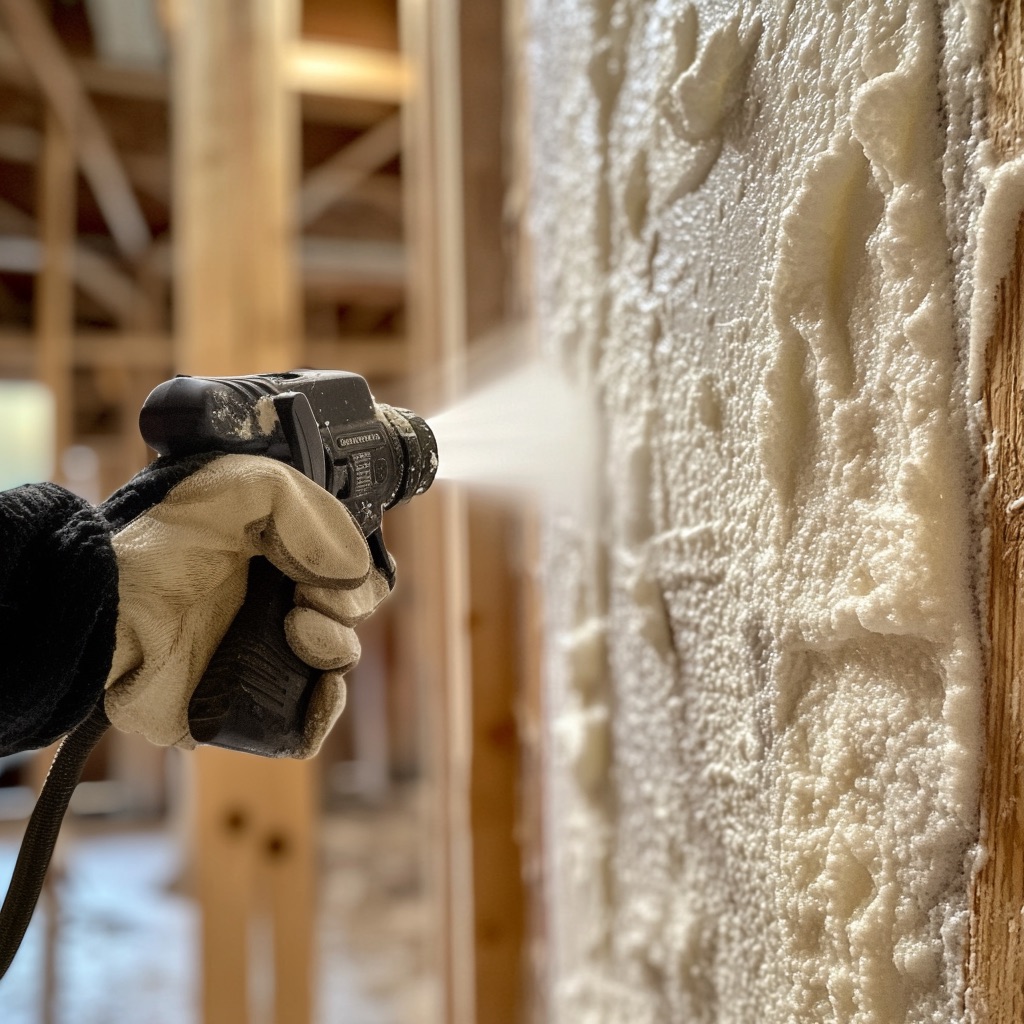Electricity has become essential to our daily lives, powering everything from our phones and laptops to our homes and workplaces. However, when something goes wrong with the electrical system in our homes, it can quickly become a major headache.
In these situations, many homeowners face the dilemma of whether to tackle the issue themselves or call in a professional electrician. Both options have risks and rewards, making it crucial for homeowners to consider their decisions carefully. This article will explore the pros and cons of DIY electrical work versus hiring a professional electrician.
Hiring a Professional Electrician

Hiring a professional electrician means entrusting your electrical work to a trained and licensed expert. Electricians undergo extensive training and must adhere to safety standards, making them well-equipped to handle any electrical issue.
When considering hiring a professional electrician for electrical fixes, following a structured approach is essential to ensure you select a qualified and trustworthy professional. The following are the benefits and risks of hiring a professional electrician.
Benefits of Hiring a Professional Electrician
The biggest benefit of hiring a professional electrician is the assurance that comes with knowing the job will be done correctly and safely. Additionally, experienced electricians can access specialized tools and equipment that may not be available to homeowners. They also know about local building codes and regulations, ensuring that all work is up to standard.
Risks of Hiring a Professional Electrician
The most significant downside to hiring a professional electrician is the cost. Depending on the complexity of the job and the electrician’s hourly rate, it can be quite expensive. Additionally, finding a reputable and reliable electrician can be challenging, as many unlicensed and inexperienced individuals pose as professionals.
DIY Electric Work
DIY electrical work refers to tasks that the homeowner does without the help of a licensed electrician. This can range from simple tasks like changing a lightbulb to more complex projects like installing a new electrical outlet.
Benefits of DIY Electrical Work
One of the main reasons homeowners choose to do their electrical work is the potential cost savings. Hiring a professional electrician can be expensive, and for some smaller tasks, it may seem unnecessary. Additionally, many enjoy the challenge and satisfaction of completing a task independently.
Risks Associated with DIY Electrical Work
Despite the potential benefits, there are significant risks associated with DIY electrical work. The biggest concern is safety hazards, as working with electricity can be extremely dangerous.
One mistake could result in electric shocks or even fires, putting yourself and your home at risk. Additionally, incorrect installations can lead to further issues and may not comply with legal and insurance requirements.
Making the Decision

When faced with an electrical issue, homeowners must consider their options before deciding. Some factors to consider include the complexity of the task, personal skill level, safety concerns, and budget and time constraints.
Complexity of the Task
The complexity of the task is critical in deciding between DIY and professional electrical work. A knowledgeable homeowner might safely manage simple tasks like replacing a fuse or lightbulb. However, more complex projects that involve wiring, circuitry design, or installation of new electrical systems should almost always be left to the professionals to ensure safety and compliance with local codes.
Personal Skill Level
When considering DIY electrical work, being honest about your skill level is essential. Attempting a task beyond your capabilities could result in injury or damage to your home. If you are not confident in your abilities, leaving the job to a professional is best.
Safety Concerns
Safety should always be the top priority when dealing with electricity. Even experienced electricians are at risk of electric shocks and other accidents. If there is any doubt about your safety or those around you, hiring a professional is best.
Budget and Time Constraints
The cost and time associated with hiring a professional electrician may also influence the decision-making process. DIY work can save money in some cases, but if it requires extensive research and specialized tools, it may cost more in the long run. Additionally, if time is a constraint, hiring a professional may be the best option to ensure the job is completed quickly and correctly.
DIY and professional electrical work have their own risks and rewards. While saving money by taking on tasks yourself may be tempting, safety should always be the top priority.
For complex or potentially dangerous tasks, hiring a professional electrician with the expertise and experience to ensure the job is done safely and correctly is best. Ultimately, homeowners must carefully consider their options and prioritize safety when making electrical work decisions.
Recap




